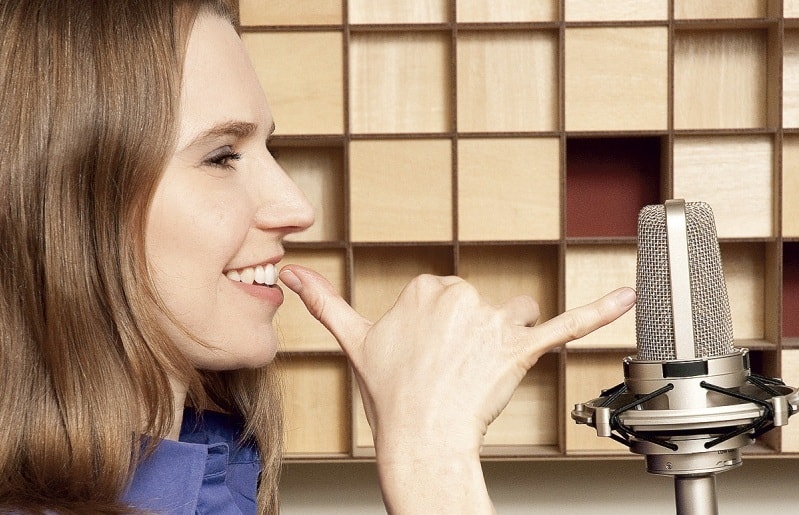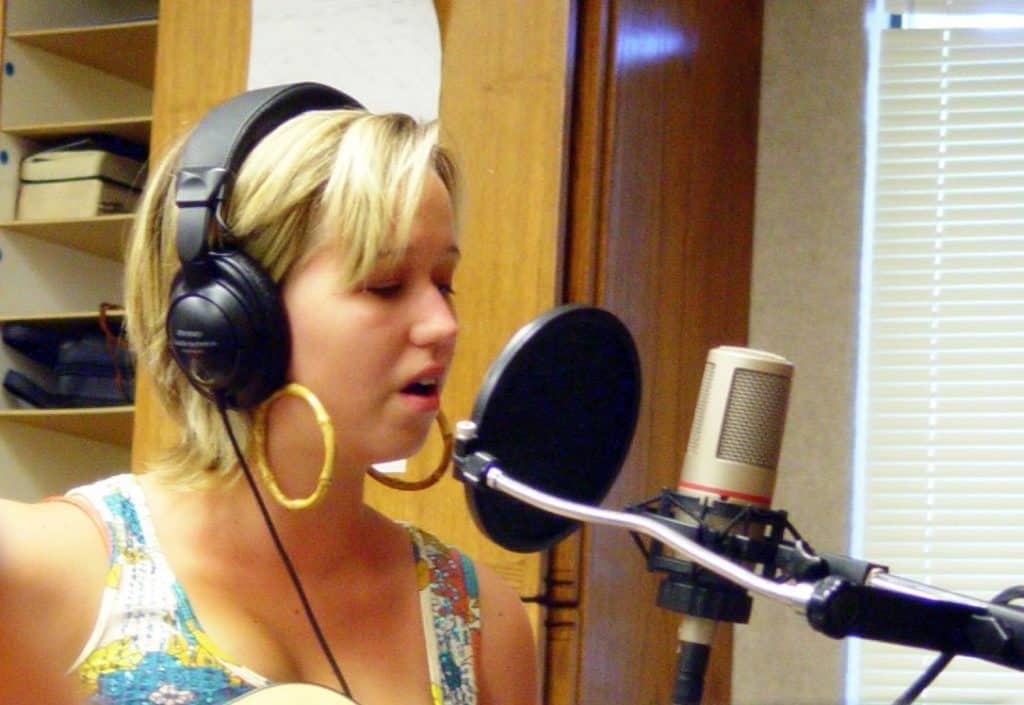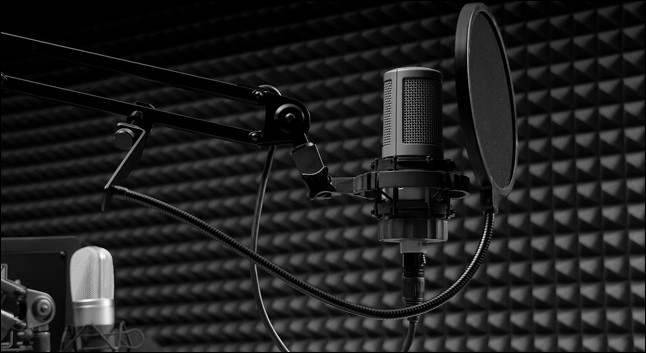This month, I want to take things to the next level. As in all acting, it’s helpful to look at auditioning as your job and a chance to do what you love to do. When it comes to ratio of auditions to booking, it is in the range of 40 or 50 auditions to one booking—and often higher. Even the VO masters have shared with me that that is their average. Sometimes you can get on a roll and book five in a row, however it’s always been a bit of a numbers game. So here are five details you need to know or consider when auditioning…
Distance from the microphone: Remember the ‘hang-ten’ hand sign? You can use it to set the proper distance between your mouth and the microphone when you audition. Your mouth and the mic head should be about the distance between the tips of your little finger and thumb as if you were a surfer and signaling, “yo bro, great waves!” For most of us, that will be about five to six inches. Too close and you’ll be too hot and red-line the recording. Too far back and it may sound as if you’re ‘off mic.’

Slating: Whenever you audition, they have to know who they’re listening to, so you slate your name. Sometimes you’ll slate your name and the name of the character, but only if they ask you to do so. A slate is important, as it’s the first thing they hear. Slate with confidence. I like to say, “It’s your ‘Hello,’ and how they are going to find you when they want to hire you.” I believe in a nice firm slate, not one where you sound like you’re questioning if you should be there. It’s like a handshake. A firm handshake implies confidence, whereas a squishy one doesn’t. After all, if you are auditioning, you are an invited guest. They want you to be there, and honestly, they want you to be the one to solve a need, which is to find the right person for the role. So take confidence in that.
File Labeling: Since the bulk of all auditioning is now done from home and not in a casting studio (where they do all these detail things for you), you must label your .mp3 file correctly. If your agent or the casting house says to label it as First name_Last name_Agent.mp3, you need to follow that format exactly. During COVID, I actually had my agent tell me to not leave a space between my first and last name on one particular audition, and to follow it exactly as stated in the email and specs. My agency usually did want a space between “Kathy” and “Grable,” but for this one, they didn’t. And if it wasn’t labeled exactly right, my agent sometimes wouldn’t even be able to upload it to the casting house. Same with an underscore (_) verses a dash (-). Be detail-oriented. The agent then mentioned he’d sent hundreds of roles out that afternoon for one video game. Realize an agency can’t always change or catch every one. You don’t want your audition tossed out before the casting house hears it.
Posture and Movement: When you audition, remember the character’s physical and mental state. Like stage acting, a slumped-over character reflects defeat. One standing tall and proud reflects that inner life. A shy, timid character—the same. If you’re auditioning for an animated cat, get your claws up. If your character is happy, then smile; if apologetic, then assume that posture. The listener, a casting agent or director, can “hear” your posture and the movement in your voice. Feel free to move around and get loose. Remember you can move around, your mouth just needs to stay “on mic,” unless you want to make a choice to yell “off mic.” I will delve into this next month when I cover some effective ways to create ambience or other choices that fill in the details of a scene in the audio world.

Pop screen: It’s not a bad idea to use a pop screen. This will help with those ‘P’s and hard plosive sounds. You don’t want to have anything distract from your brilliant read, and you want to sound professional. I don’t coach voice actors to overly worry about this technical aspect, because I’ve seen and experienced that when an actor connects in a scene, so much of the ‘P’ popping, etc., goes away. Conversely, being overly concerned about how you are sounding leads to listening to your own voice and can get you “in your head.”
It is important to know that there are some basic things that make a difference between you sounding like an amateur and someone who can truly play in this wonderful world of voiceover.
